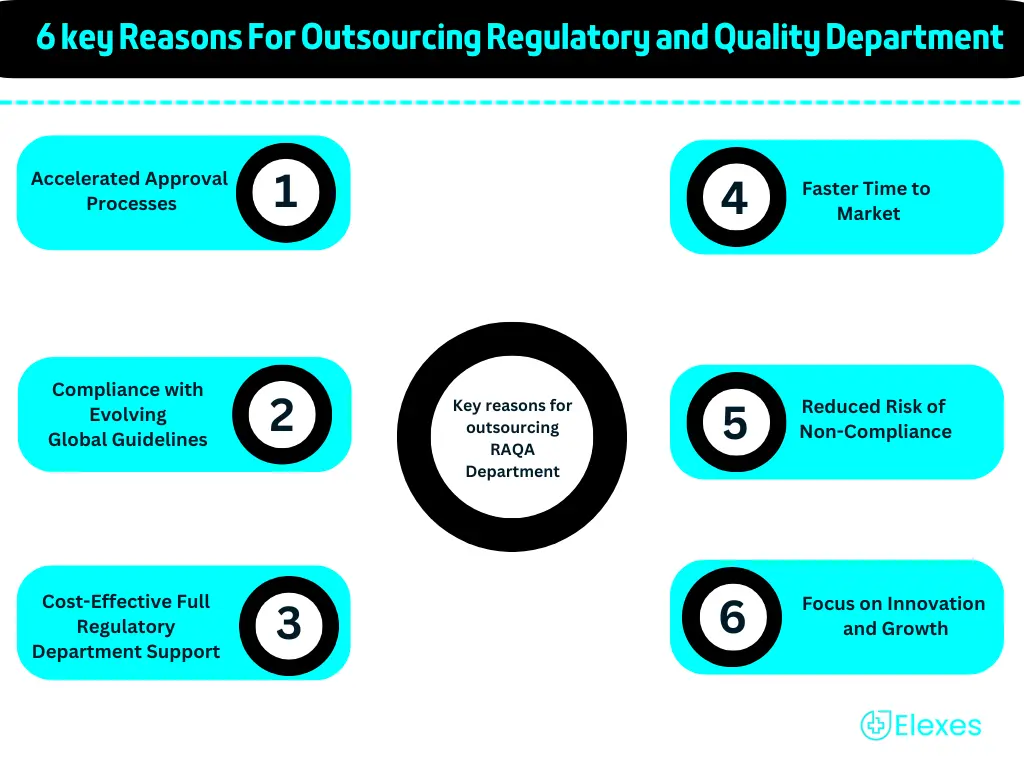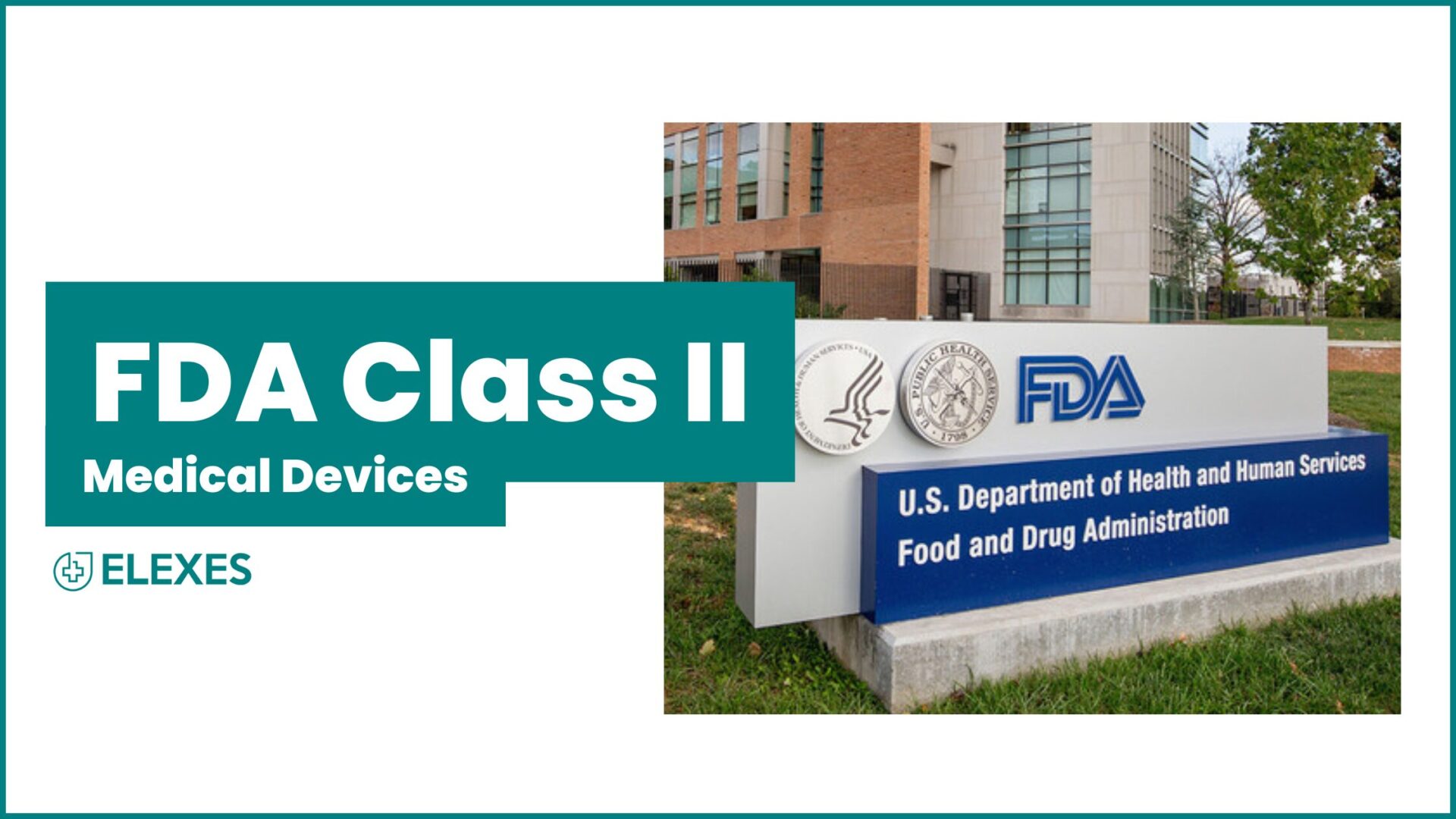This article offers valuable insights into how outsourcing regulatory and quality departments can help medical device companies succeed by boosting efficiency, ensuring compliance, and speeding up time to market in a highly regulated industry. Before we dive in, first let’s understand the medical lifecycle and its management, so we appreciate the breadth of activities in regulatory and quality involved in each of the stages of a medical device lifecycle.
Medical Device Lifecycle and the importance of its management
The medical device lifecycle is a complex process that encompasses various stages, from initial design and development to post-market surveillance. Each stage of the medical device lifecycle involves extensive documentation like a Design History File (DHF), verification and validation documents, regulatory strategy and classification followed by submissions for approvals, post market surveillance plan, reports, quality procedures, risk management documents, and many more. Each of these are prepared after much research, by leveraging industry specific knowledge, and must be done under the oversight of regulatory and quality professionals. Ensuring regulatory compliance and maintaining high-quality standards throughout the medical device lifecycle is crucial; inadequate attention at any stage can lead to significant consequences, including safety issues, product recalls, and legal liability. Organizations that fail to implement robust regulatory and quality frameworks may experience delays in market entry, compromised patient safety, and diminished reputation.

Given the extensive range of activities required throughout the lifecycle of a medical device, as illustrated in Image 1 above, each step requires specific regulatory and quality oversight. This oversight necessitates professionals with specialized skill sets. It is often challenging for medical device companies to find individuals who possess all the necessary expertise, which can lead to overstaffing, understaffing, or employing professionals who lack the critical competencies. These situations can create significant challenges. However, they can be effectively mitigated through outsourcing, which allows companies to access specialized expertise while maintaining operational efficiency.
When it comes to outsourcing and regulatory and quality competence, Elexes Medical Consulting stands out as a premier choice for medical device companies. With a wealth of expertise and a proven track record, Elexes provides comprehensive solutions that not only streamline compliance processes but also enhance product quality and ensure that companies meet stringent regulatory requirements efficiently and effectively.

PC: Design by Freepik
Today, many medical device companies are using outsourcing as a smart and economical way to keep up. Here’s how outsourcing your regulatory and quality department to a consulting firm like Elexes can help you.

1. Accelerated Approval Processes
Medical devices are complex and the compliance and regulatory approval requirements vary across regions. To launch products in multiple markets, companies must submit applicable regulatory applications such as PMA Submissions, 510(k) Submissions, and other US FDA Regulatory Submissions for the US market, or obtain a CE Mark and comply with different regulatory standards such as ISO 13485 and MDSAP for Canadian and European markets. Outsourcing regulatory affairs allows the companies to benefit from regulatory & quality expertise on-demand, ensuring that all approval processes are managed efficiently.
Specialists in outsourced regulatory teams are familiar with the global guidelines, making the submission and approval process faster, reducing delays, and helping companies bring products to market at the earliest.
2. Compliance with Evolving Global Guidelines
Medical device regulations are constantly evolving. For example, the European Union has adopted stricter standards through the EUMDR/IVDR Compliance framework, while the U.S. FDA continues to update its requirements and release a plethora of FDA guidance documents. Staying up to date with these changes and maintaining compliance is significant for success in the medical device industry.
Outsourcing regulatory and quality functions ensures that the companies remain compliant with the latest FDA Regulations and international requirements like the Technical Documentation for CE Mark as per the new EU MDR and EU IVDR, or others. An outsourced team helps provide expert knowledge to keep companies aligned with the global regulatory expectations without the need for continuous in-house training and retraining in case of attrition or role change.
3. Cost-Effective Full Regulatory Department Support
Establishing and maintaining an in-house regulatory and quality department can be very expensive for the medical device companies. The costs associated with hiring, training, and continuously updating staff knowledge to meet changing regulations can be overwhelming. Quality assurance and regulatory affairs outsourcing offers a cost-effective alternative by providing full regulatory department support without the need of an internal team in this area.
With an outsourced model, companies can scale their regulatory and quality support based on project needs, ensuring that they only pay for the services they require, when they need them. This flexibility is especially beneficial and helps the smaller companies or startups looking to conserve resources while remaining compliant.
4. Faster Time to Market
Having a dedicated team that is focused on regulatory & quality expertise allows medical device companies to focus on innovation, research, and development, while the hired experts handle the regulatory and quality compliance hurdles. This means products can reach the patients and healthcare providers faster, and be of a higher quality and reliability, improving both business outcomes and patient care.
5. Reduced Risk of Non-Compliance
Non-compliance with regulatory standards can lead to product recalls, legal penalties, and damage to a company’s reputation. Outsourcing reduces this risk by ensuring that all the submissions and processes are adhered to the latest regulatory guidelines and are done in a timely manner without missing out any important deadline. Outsourced quality and regulatory teams conduct thorough checks, ensuring all Technical Documentation, Clinical Evaluation Reports (CER), and US FDA Regulatory Submissions are prepared to the highest standards.
Having experts in place to handle compliance minimizes the risk of errors, delays, or rejections in 510(k) submissions, a few essential aspects such as selecting the proper predicate, RTA checklist, identifying the right controls, and labeling claim play a crucial role that, if not done properly, could delay product clearance or risk market access. All this can be preemptively mitigated by outsourcing to a team of Experts.
6. Focus on Innovation and Growth
The medical device industry is highly competitive, and companies need to focus on their core business—innovation, product development, and market growth. Outsourcing the regulatory and quality departments allows companies to concentrate on these critical areas, while trusted experts manage the compliance side of the business.
By shifting the burden of the regulatory affairs to an outsourced team, the internal staff can focus on creating the next breakthrough product, improving existing technologies, and expanding into new markets by addressing unmet medical needs. This strategic focus on growth and development positions the company’s long-term success in a competitive global market.
Conclusion: Outsourcing Is the Future of Regulatory and Quality Management
As the medical device industry continues to evolve, so do the complexities of regulatory compliance. Outsourcing regulatory and quality departments provides medical device companies with the expertise, flexibility, and cost savings needed to stay compliant in an increasingly regulated environment.
From managing 510(k) Submissions to ensuring CE Mark Certification and compliance with FDA QSR, ISO 13485, and EU MDR /IVDR standards, outsourcing offers full regulatory department support that helps companies to accelerate product approval while minimizing risk. By outsourcing the medical device companies can reduce costs, streamline compliance, and focus on innovation—making it the best option for the future of regulatory and quality management.
This forward-thinking approach not only ensures compliance but also drives faster time to the market, better resource allocation, and overall business growth. For medical device companies, outsourcing regulatory and quality departments is not just a cost-saving measure; it’s a strategic advantage.





















